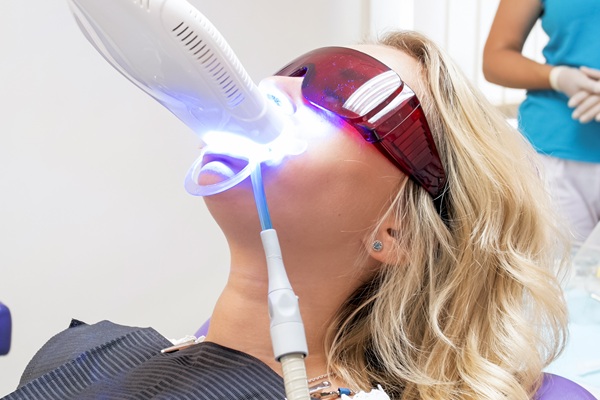Common Signs a Root Canal Might Be Needed

A root canal is a dental procedure that can save an infected, damaged or severely decayed tooth from becoming lost. Root canal therapy is often necessary when other treatment options are not an option. It is important to know the signs that a root canal is necessary to ensure the long-term health of the tooth.
When a root canal might be necessary
When determining whether or not a root canal is necessary, the dentist will examine the patient’s symptoms and the severity of the symptoms. The following are four of the more commonly reported symptoms among patients who are in need of root canal therapy to prevent a tooth infection from spreading or the tooth from falling out.
Severe toothache
A severe toothache is perhaps the most common symptom that indicates a root canal is necessary. This is because the dental pulp in the root of a tooth contains nerves and blood vessels. When these nerves and blood vessels are exposed or damaged, then it can lead to chronic pain. If left untreated, the severe toothache will grow increasingly worse and inevitably lead to tooth loss. Although not every instance of a severe toothache is due to a tooth infection that requires a root canal, it does require a prompt visit to the dentist to determine the root cause.
Sensitivity upon pressure
Along with chronic pain, many patients also experience tooth sensitivity. Specifically, patients who are in need of a root canal due to tooth damage, a tooth infection or severe decay will experience sensitivity when there is pressure placed upon the affected tooth. They may also be vulnerable to sensitivity when the tooth is exposed to hot and cold temperatures from foods or drinks. This indicates that there are issues with the root of a tooth. A root canal can remove the infected pulp and treat tooth sensitivity.
Prolonged gum complications
Issues with the gums may also indicate a root canal is necessary. Most notably, gum swelling, discoloration and tenderness may occur. If these symptoms exist along with tooth pain and sensitivity, then a root canal may in order. Gum swelling that is minor and exists on its own may not be an immediate cause for concern, but more severe gum complications do require a prompt consultation visit with the dentist.
Discoloration and deep decay
Anytime the root of a tooth is affected by deep tooth decay, a root canal may be in order. This is why it is important to treat minor cavities as quickly as possible. If more severe decay is detected, then a dental filling may not be enough to entirely fill the cavity, and a root canal may be the best choice in this instance.
A dentist can help you through root canal therapy
Root canal therapy is never a fun experience, but our friendly dental team is here to help you through the treatment process. If you want to learn more about root canal therapy and determine if it is right for you, then reach out to our team today.
Request an appointment here: https://bloomfield.ismiledentalcarenj.com or call iSmile Dental Care of Bloomfield at (862) 702-5234 for an appointment in our Bloomfield office.
Check out what others are saying about our dental services on Yelp: Root Canal Treatment in Bloomfield, NJ.
Recent Posts
Root canal therapy is a commonly performed dental treatment that is used to treat infection or swelling of the pulp tissues inside a tooth. A tooth’s pulp is the blood vessels and nerves in its innermost layer called the pulp chamber. It is sealed off from the rest of a tooth to protect its sensitive…
Looking for information on common root canal symptoms? There are many symptoms that may appear when someone is in need of root canal therapy. When it is determined that someone needs to undergo a root canal to save a tooth, a general dentist can typically perform the procedure.Understanding symptoms associated with the need for a…
Many people do not know that regular dental checkups are the most important preventive dentistry procedures against oral cancer. The dentist’s objective is to prevent and diagnose any issue as early as possible, when treatment is easier. Preventive dentistry is all about keeping the oral cavity healthy for a long time. Oral cancer screening is…
A toothache is often the first sign that you need to visit the emergency dentist. If the toothache persists for more than a few days, you could be dealing with an infected tooth or worse. Without treatment, the situation may worsen and cause eventual tooth loss. The dentist will examine the tooth to learn the…


